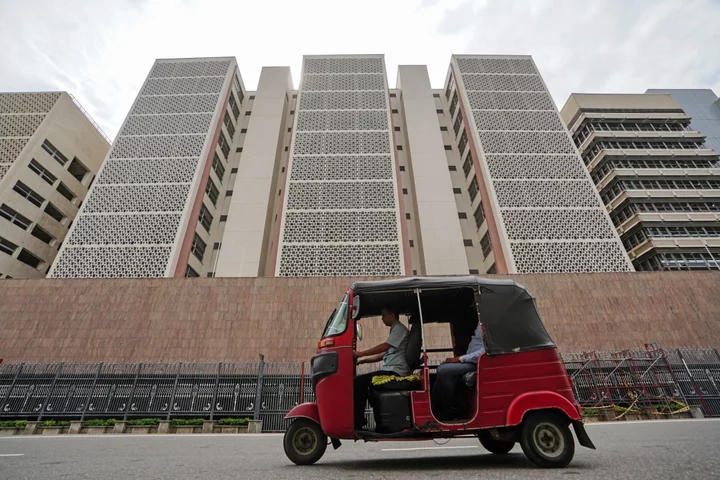Sri Lanka stands a strong chance of passing the first review of its $3 billion bailout given falling interest rates and a build-up of foreign reserves, according to the nation’s representative on the International Monetary Fund executive board.
The South Asian country’s efforts to achieve debt sustainability in line with IMF stipulations are also progressing smoothly, said Krishnamurthy Subramanian, who also represents India, Bangladesh and Bhutan. IMF officials will visit Sri Lanka in September “to take stock of the situation,” added Subramanian, one of 24 executive directors on the board.
Loan disbursement decisions like the upcoming one for Sri Lanka require a majority of voting shares at the board, a governing body for the IMF that tries to operate by consensus. Subramanian made clear that his views are his own, and that he couldn’t speak for the overall view of the board.
A stronger currency and strengthened reserves “are all definitely very encouraging signs, which suggests that the forthcoming review should go through,” Subramanian said in an interview in Washington on Tuesday. “Sri Lanka is closely following the guardrails that have been laid for the program.”
The Central Bank of Sri Lanka earlier this month cut its benchmark rate for the second consecutive meeting as faster disinflation gave policy makers the space to focus on a recovery from the worst economic crisis in seven decades. The move came after the latest inflation data showed the rate fell by half in June and a local debt revamp strategy, which mostly left out domestic commercial banks, bolstered the Sri Lankan rupee while sending the nation’s stocks and dollar bonds surging.
Sri Lanka’s foreign exchange reserves have also swelled to $3.5 billion from lows of around $1.7 billion last year, amid dollar receipts from tourism and remittances and central bank purchases of inflows that have been spurred by the IMF program.
The decision to mostly spare commercial lenders from the nation’s local debt restructuring strategy ensures that the banking system does not get de-stabilized given rising non-performing assets after the pandemic and the island’s economic crisis, Subramanian said.
“This is a sensible way of going about the restructuring on the private credit side,” Subramanian said. Subramanian also said he didn’t foresee difficulties in Sri Lanka’s debt restructuring negotiations with its official creditors.

